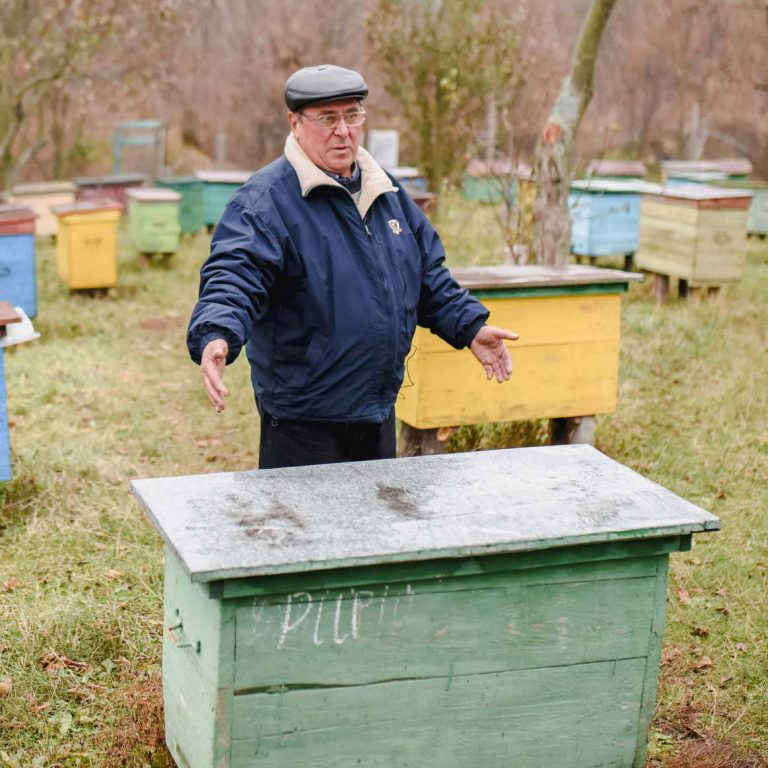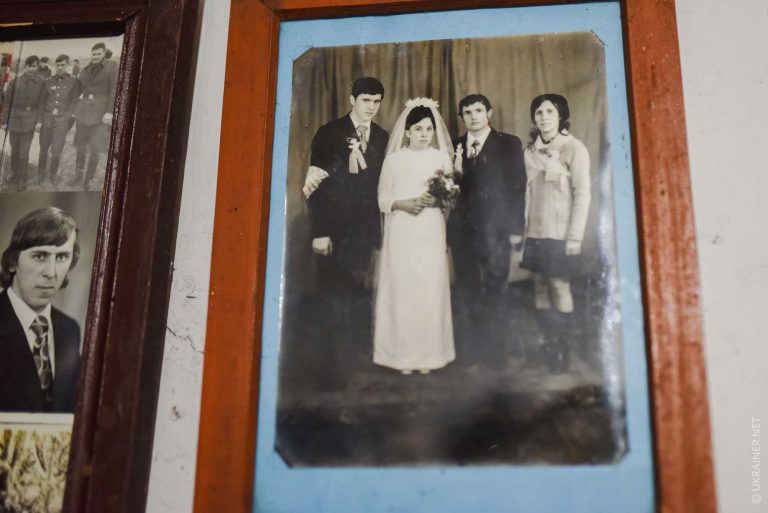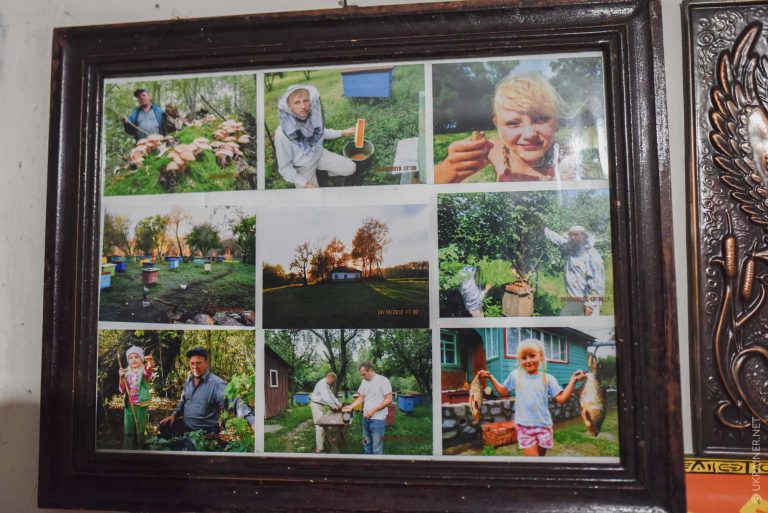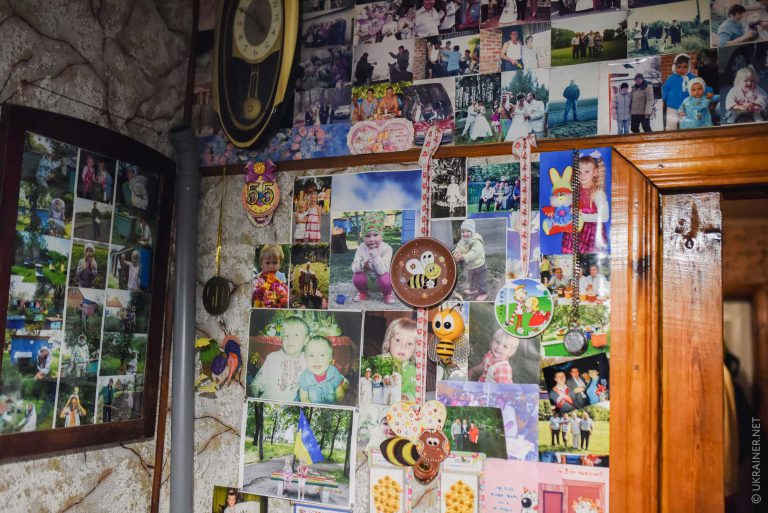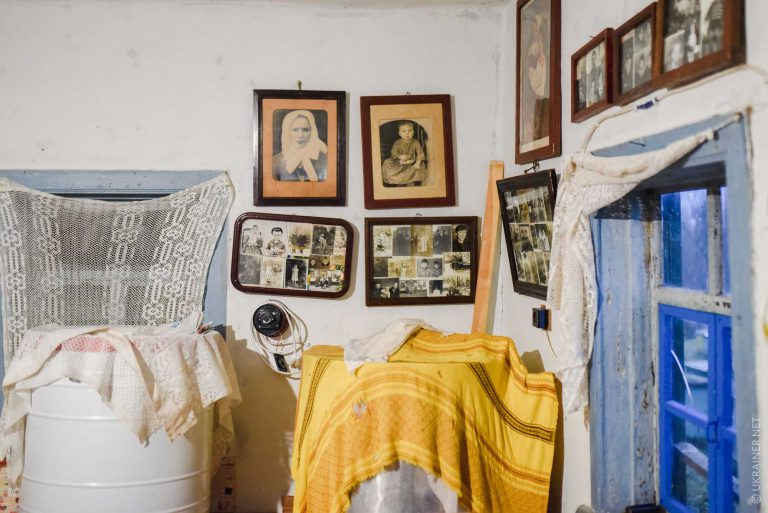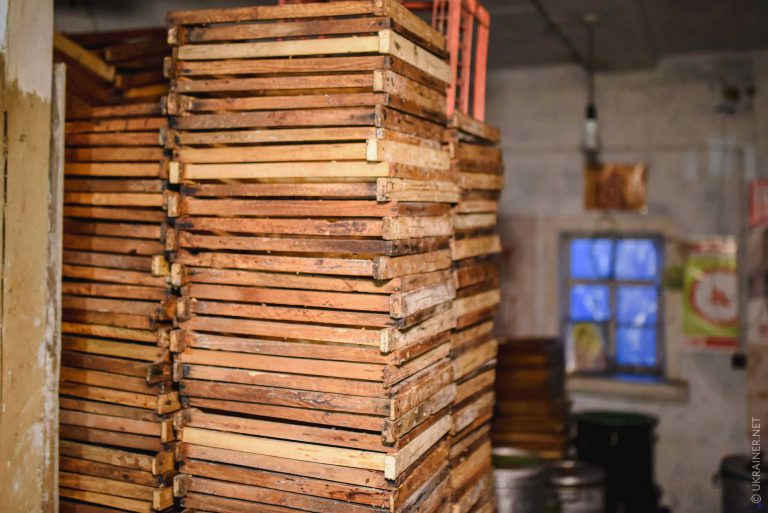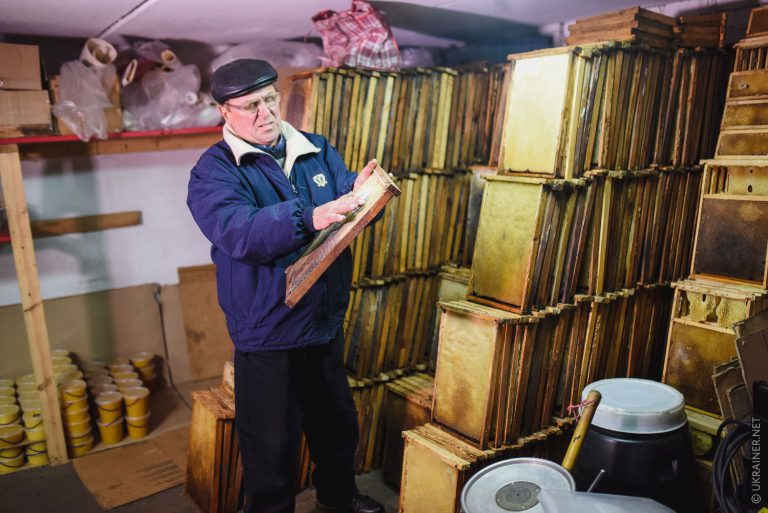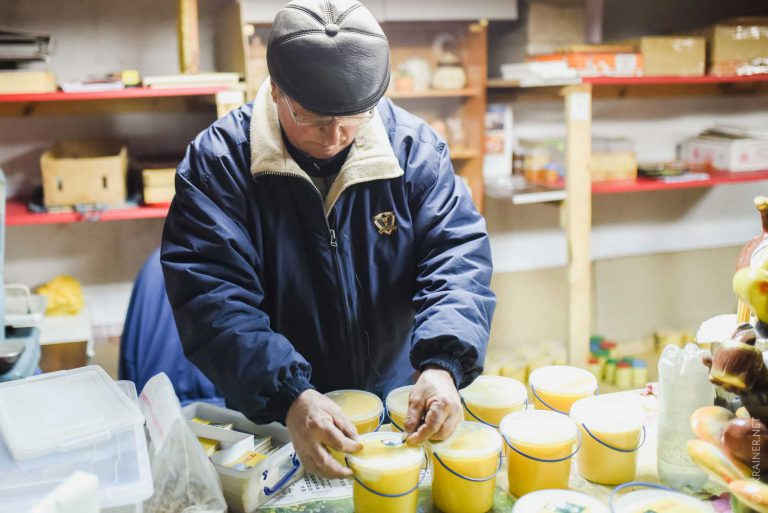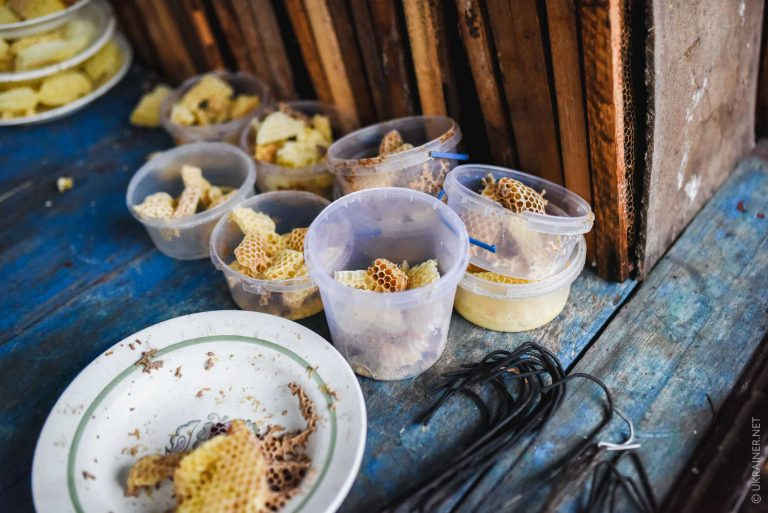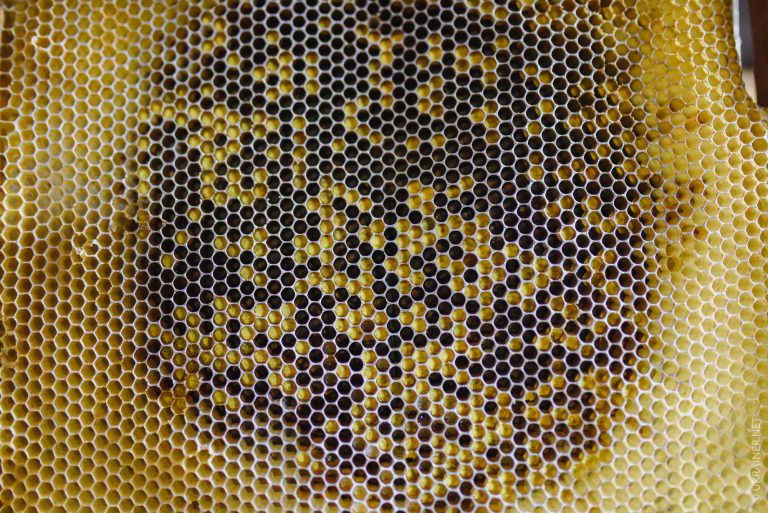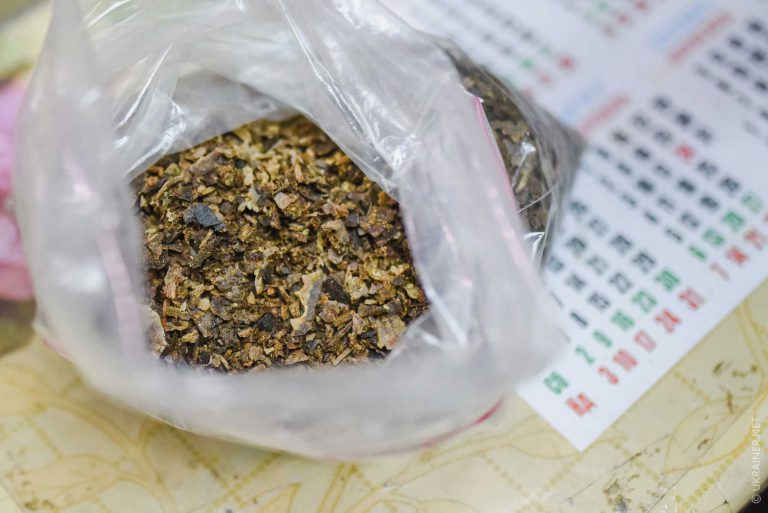In Yuriivka that is in Poltava region there is no signpost, no village council, no palace of culture, no hospital, and even no school. In the village where there were once 60 houses and lived about 300 people, at present time less than 20 locals have left. The rest had left for several reasons. Firstly, there was no work in the village. The only option was a tractor brigade, and it was located 2 km away from the village. Secondly, passports were not issued before to people in rural areas, thus, villagers had to move to study to district centers in order to get documents. After finishing their studies, the majority of villagers, of course, stayed in cities. However, not all of them.
The biggest apiary in the area with 140 hives is located here in Yuriivka. Only one person is taking care of this apiary. And this person is worth of your attention. Ivan Gura was the first one in the family who has started beekeeping and it became his lifework. Following his dream to work for himself, Ivan initially did everything as everyone else in the village: worked at the factory, earning money for an apartment that later became unneeded. The town apartment was replaced by the village house, and bees instead of neighbors.
Beekeeping is not only earning, but also a great pleasure. Having started with a few hives back in the days, nowadays he is already passing his experience to his children and grandchildren, as well as others who is willing to learn.
There were times when Ivan were studying at boarding school in Hadiach in order to receive a passport. In 1971 he graduated from school and after getting the passport did not move far: he stayed in Hadiach. Also he studied at Agrarian specialized school and Beekeeping Academy. He had worked at the reinforced-concrete factory for 12 years as a concrete worker. It was not an easy task to resign from the factory:
— I worked for a bit, it was the right time to settle up, because I had no time for an apiary. So I wrote my resignation notice. And it used to be like this: if you got an apartment at the expense of the factory, you must work there for the rest of your life. The director told me: “Put your apartment keys on the table!” I told him I did not even have any, I already worked at another job. “Where? I will find out anyway and will make few calls so you won’t be accepted to any job!” My notice was signed, I got paid, and that was the end of story.

After that he worked as a beekeeper in Hadiach Beekeeping Association and already had his own apiary. Later on the association collapsed, and then Ivan with his family returned to Yuriivka, where he has been living since year 2000:
— And then it all has started: chickens, pigs, one thing led to another. And then why don’t we build a basement, do it for bees, and on the top of that let’s make a shed with few sections. One section to keep the frames and another – sometimes to stay for the night there, sometimes to park a car. So when we had made a basement and started the shed. And then we started to build next to that shed the huge porch. That’s how we got a whole house.
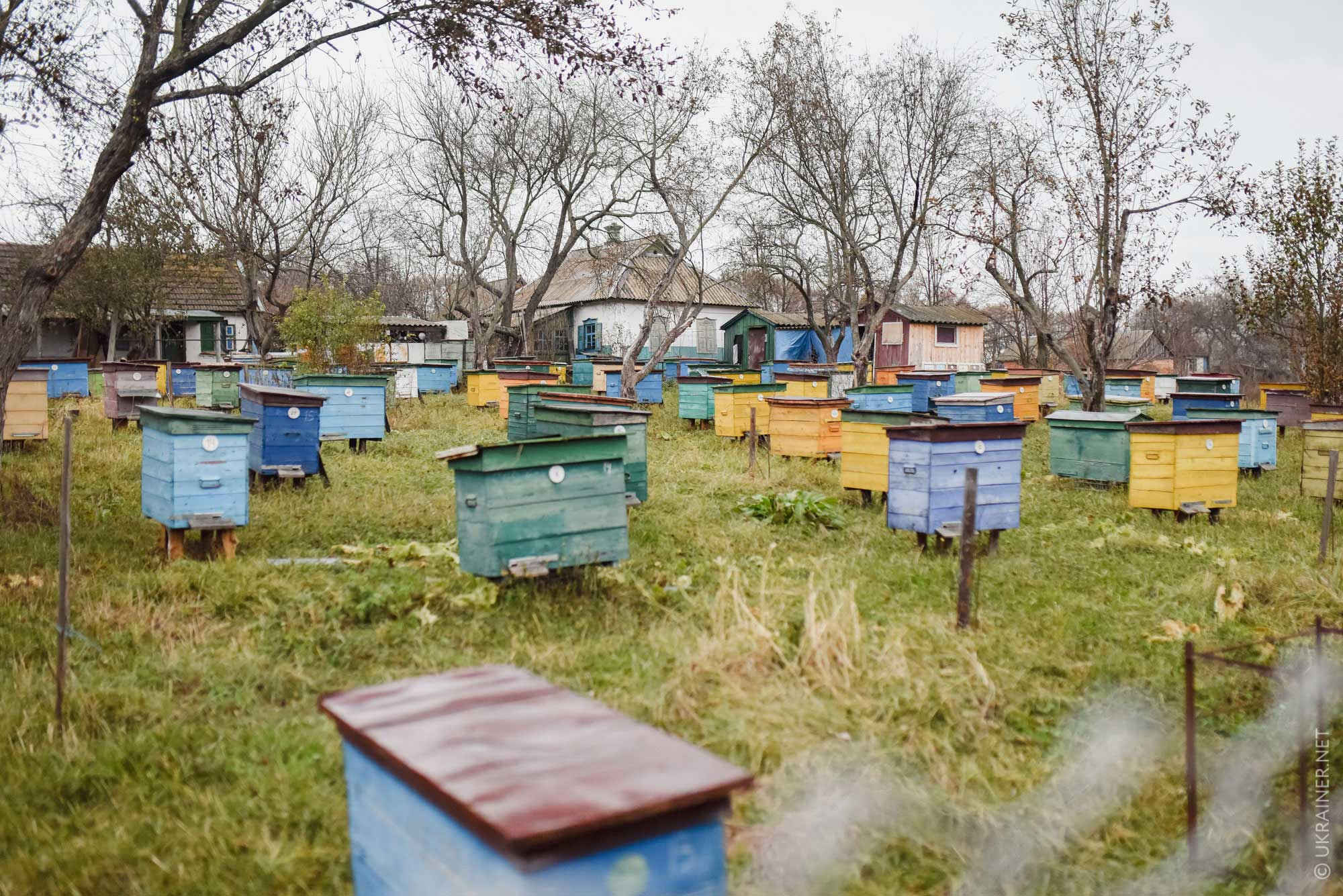
Ivan tells that many friends were laughing at him building a house in the village where almost no one lives:
— I went to Liuten’ka for classmates reunion. We were sitting at the table and my classmate asked me: “Ivan, do you know who is that fool who is building a house in Yuriivka?” I answered: “ I know, that’s actually me!” She blushed.
The majority of Yuriivka’s residents are elderly people, and there are no neighbors around Ivan, except bees.
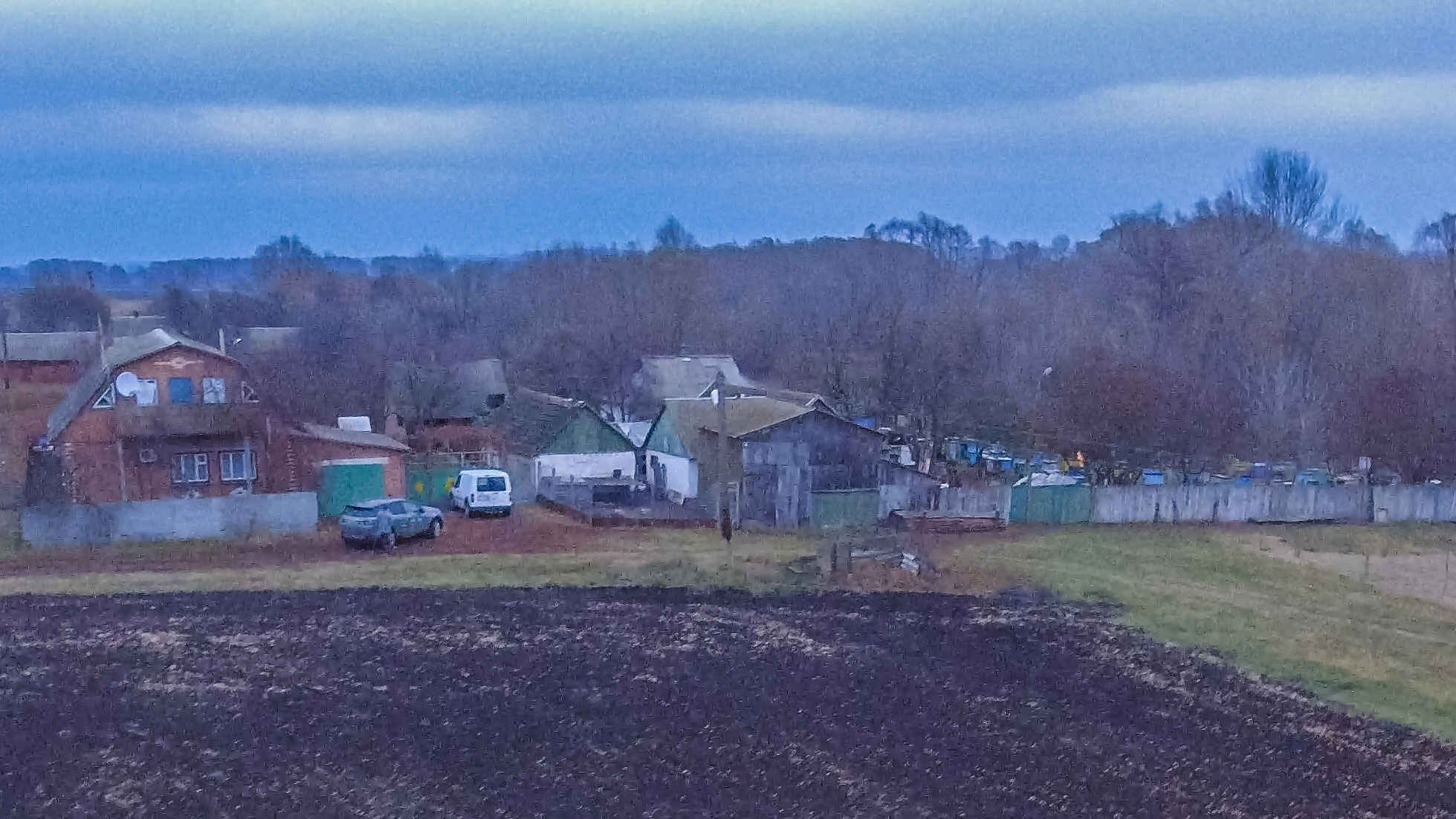
Family apiary
There were no beekeepers in Ivan’s family. Gura did not enrol in school of rail transport due to poor eyesight, and in order not to miss a year before army, he went to study beekeeping. He regrets that he did not go into apiary at first, instead he damaged his health at the factory.
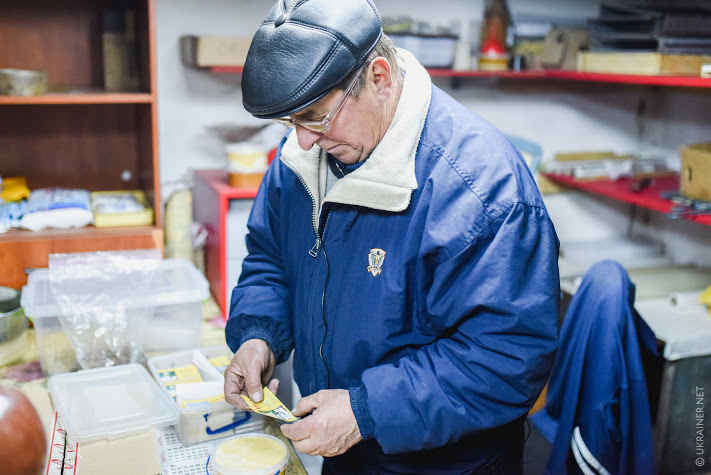
For money from the sale of honey Ivan could provide for the family and bought an apartment for his children. It is the main and the only, except pension, income of the beekeeper. Ivan’s elder son helps his father in the apiary and babysits children, because his wife works in shifts in the hospital, and children are still small. The younger son works in trading. Ivan’s parents used to live in Yuriivka as well. Nowadays their house is empty:
— Once houses are empty, there will be “experts” to destroy everything. Good that they are not interested in photographs at least. Otherwise, knocking out the doors, breaking in, stealing everything… The only thing that is left – those photos on the walls. We had photos hanging on walls in the villages, and also Ukrainian traditional rushnyks like that. A picture frame and a rushnyk over each window.
At first Ivan bought 2 beehives, then 4, after that 6. At present time he has more than 100. Gura gave 40 hives to his older son who continues father’s business, and the younger one mostly visits from Hadiach and helps.
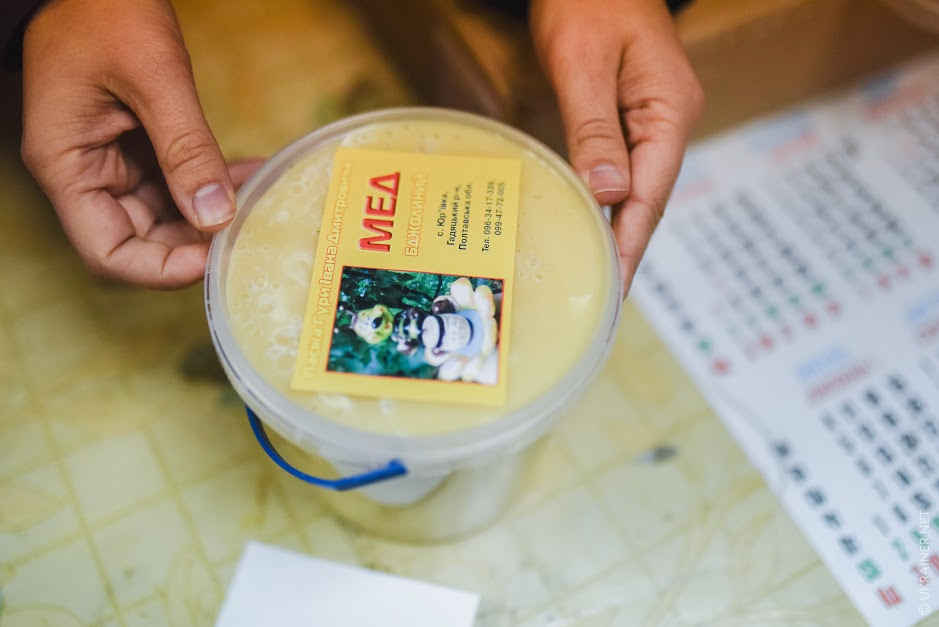
Ivan tells that when he had just started working at apiary, there was only one beekeeper in the village, however, he did not help Ivan anyhow:
— It seems to me, that he did not really want us to mess here. He did not give any advices. You would not learn anything, if you did not try yourself, if did not make mistakes. And the next year you wouldn’t make the same mistake. There was no teacher for me, even though I have apprentices now. The are those who can teach me now, and there are those that were told this and that and still they do whatever, like pumping honey in a sweatshirt.
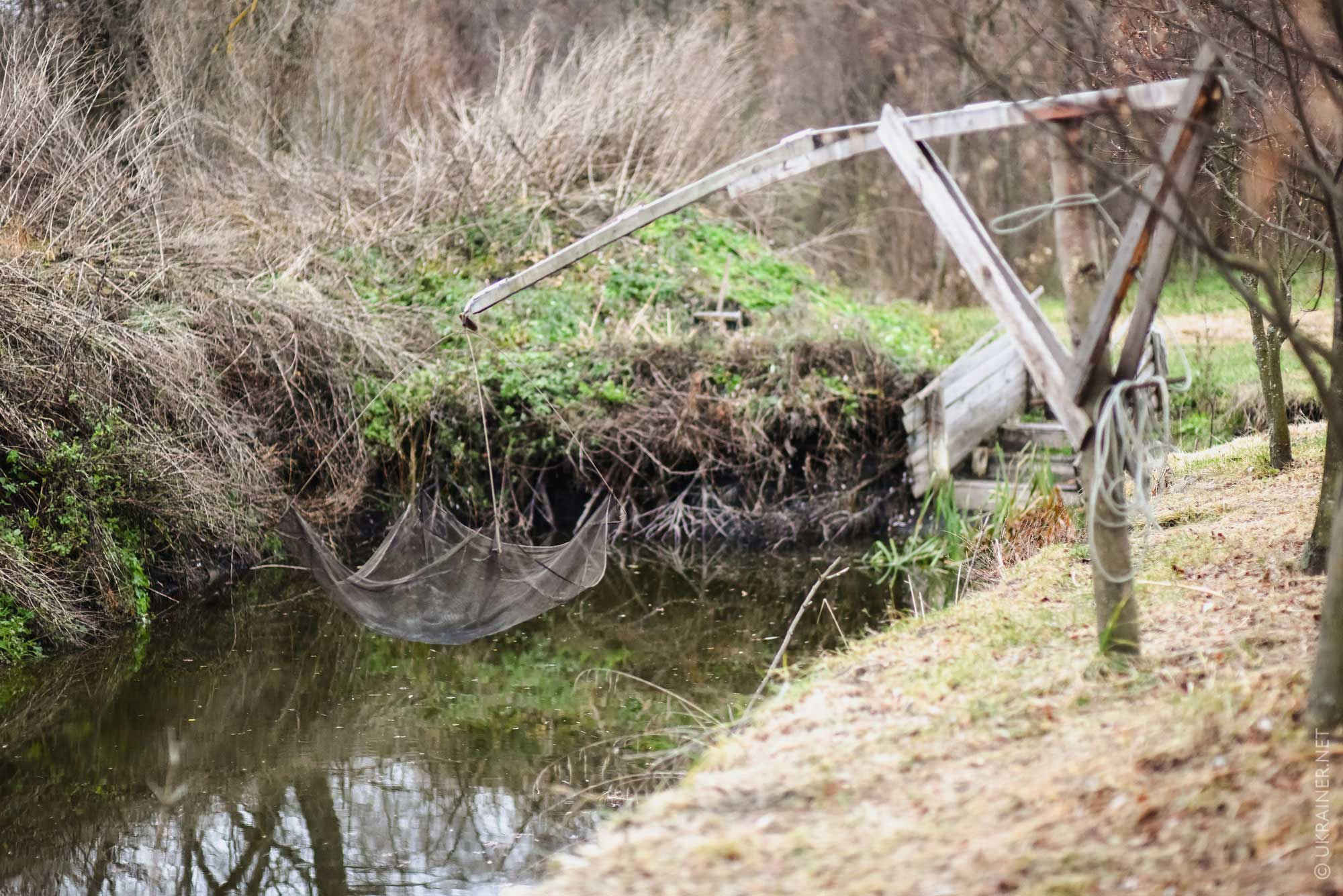
In a year from one hive the beekeeper pumps almost 25 kg of honey, on average there would be 3 tons plus 500-600 kg of pollen every summer. Of course, every year numbers differ, as well as honey. Ivan says that this year, due to adverse weather conditions, there is no acacia honey, mainly linden and buckwheat. He complains that the collective farm “is obsessed with beetroots and poisons”, so there are no weeds, neither in corn, nor in beets:
— So with this kind of progress, with these poisons, there is a possibility that we won’t have any honey at all.
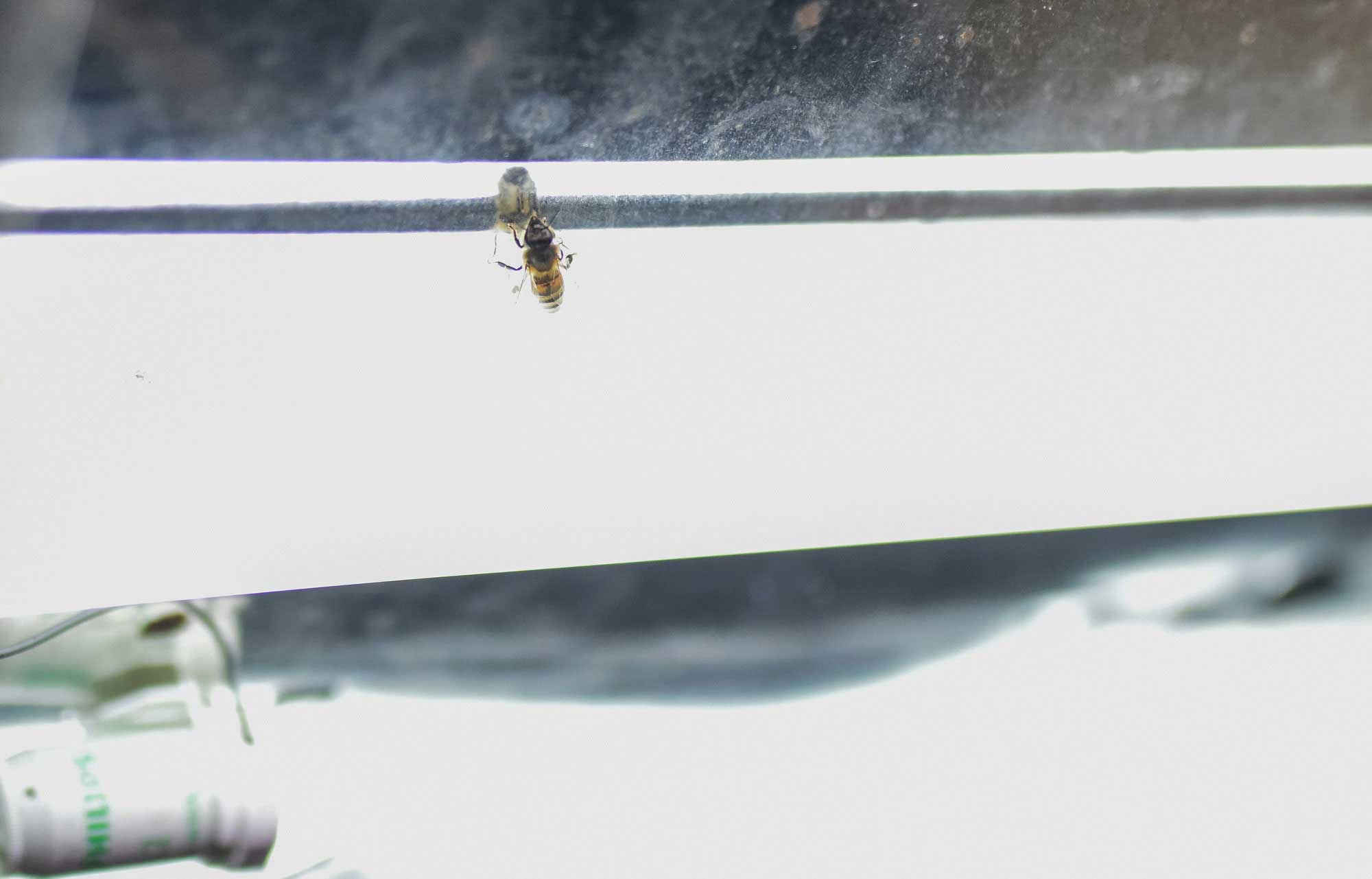
During winter time you also need to work at the apiary. Ivan tells that bees are not like flies that fall into hibernation. In winter time bees are just inactive and eat honey. If during summertime there are 20 frames in each hive, during winter – about 8-9 frames with 2 kg of feed each:
— Bees form a dense cluster during winter, and from below the frames raises upper and upper, that’s how bees survive and keep warmth. In summer the temperature inside a hive is up to 35 degrees, while in winter 15-17 degrees it’s enough. In summer they maintain that high temperature to keep little bees alive: the eggs that queen bee lays. It can be even 40 degrees outside, bees will ventilate to keep 35-37 degrees inside. So a larva can hatch and grow into a bee.
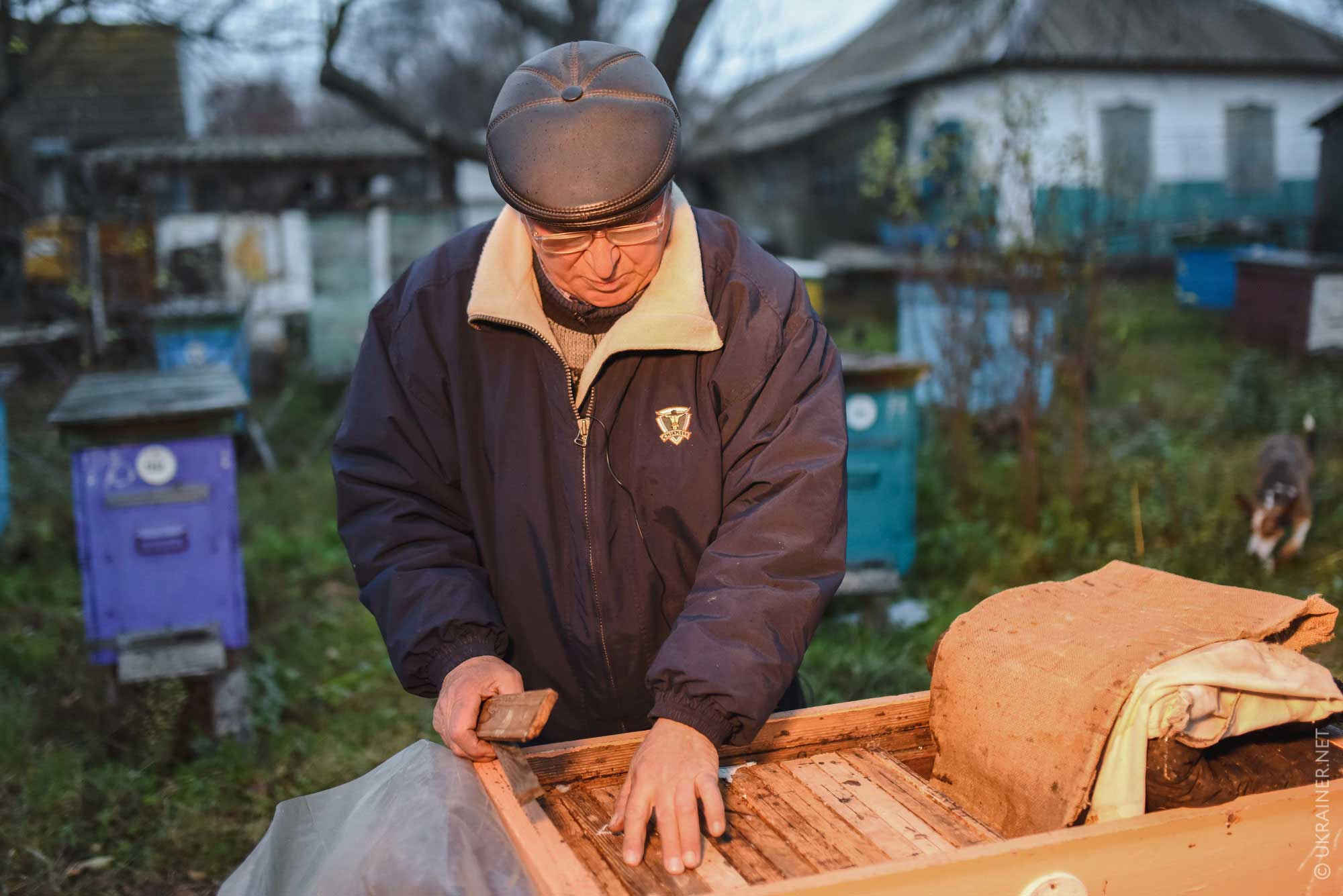
Ivan opens carefully the hive, firstly, removes the insulation and shows how the frames are set. Every frame has bees and honey from both sides, top and bottom. The temperature in a hive is influenced by bees as the result of feed consumption, and it is around 19 degrees:
— During winter the queen bee does not lay the eggs: there is no bee breeding, no larvas, nothing. 15-17 degrees is enough for a bee to survive, it won’t freeze. They keep up the temperature level, because queen bee starts laying eggs at the end of winter. Then we get a larva from each egg. Generally, the process of transformation from an egg to a bee like you see right now takes 18 days. A queen bee lays thousands of eggs a day. In summer the lifespan of a bee is 45 days, that’s it.
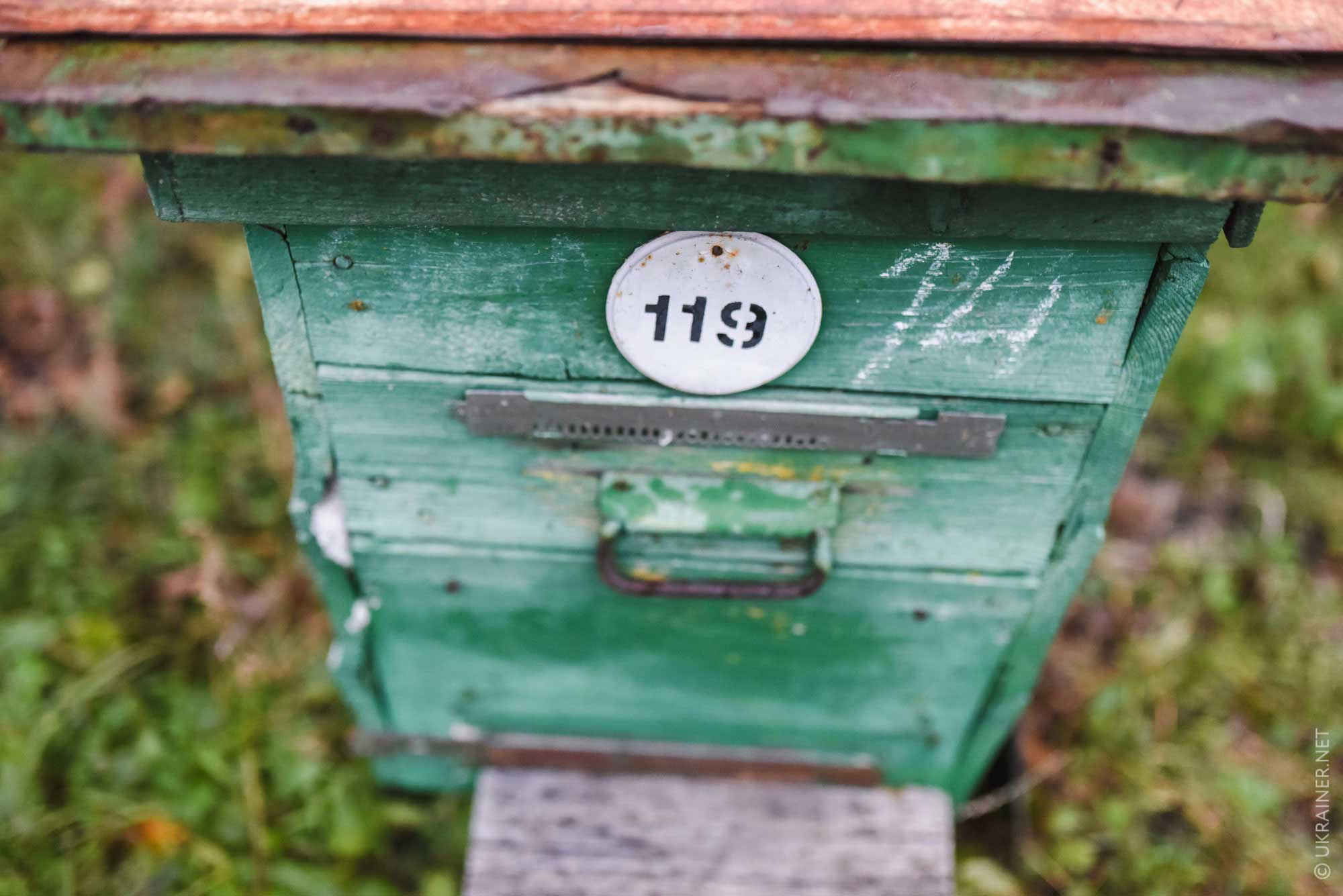
Ivan adds that bees have clearly assigned responsibilities, every bee knows its hive and will not fly to another one. Such a bee GPS:
— The responsibilities are distributed there. Young bees in the hive takes out the garbage, feeds bees, ventilates. And the older ones fly to the fields. And among those that fly to the fields there are bees that fly back from the field (called bee or waggle dance) and shows different circles on the frame, run around the frame and show bees, which are about to fly to get honey, the way they should fly.
The only thing that can damage the apiary is swarm. Ivan has his own system of returning bees home. The main thing is not to let them fly far away. Usually bees stay around hives:
— They sit for a while and then take off, they already found a hollow somewhere, the second home. And when they take off and fly away – that’s impossible to go after them. And when they take off and sit somewhere on the tree, then you take a box with frames. I have a folding ladder made from aluminum. It’s even scary from time to time when I climb it up. And that’s the time! Climbing up, hanging the box under the swarm, sprinkling it with water, and trying to bash that branch so that most bees fall down into that box. If the queen bee falls into the box, the all bee will get into that box. After a while, I climb up, take the box, prepare the hive and replace bees. There is an ointment, like Vaseline, called “Apiroi”. Special ointment to land swarms. This year, however, I couldn’t find it anywhere. If I see a swarm taking off, I have a box ready, then I smear frames with that “Apiroi” quickly. And the swarm takes off, flying in circles around the hive. So I bring the box there, 90%, even 99% of chance that the swarm will get into that box. Circling, circling, then pshhhh! Then I go and take the box, place bees.
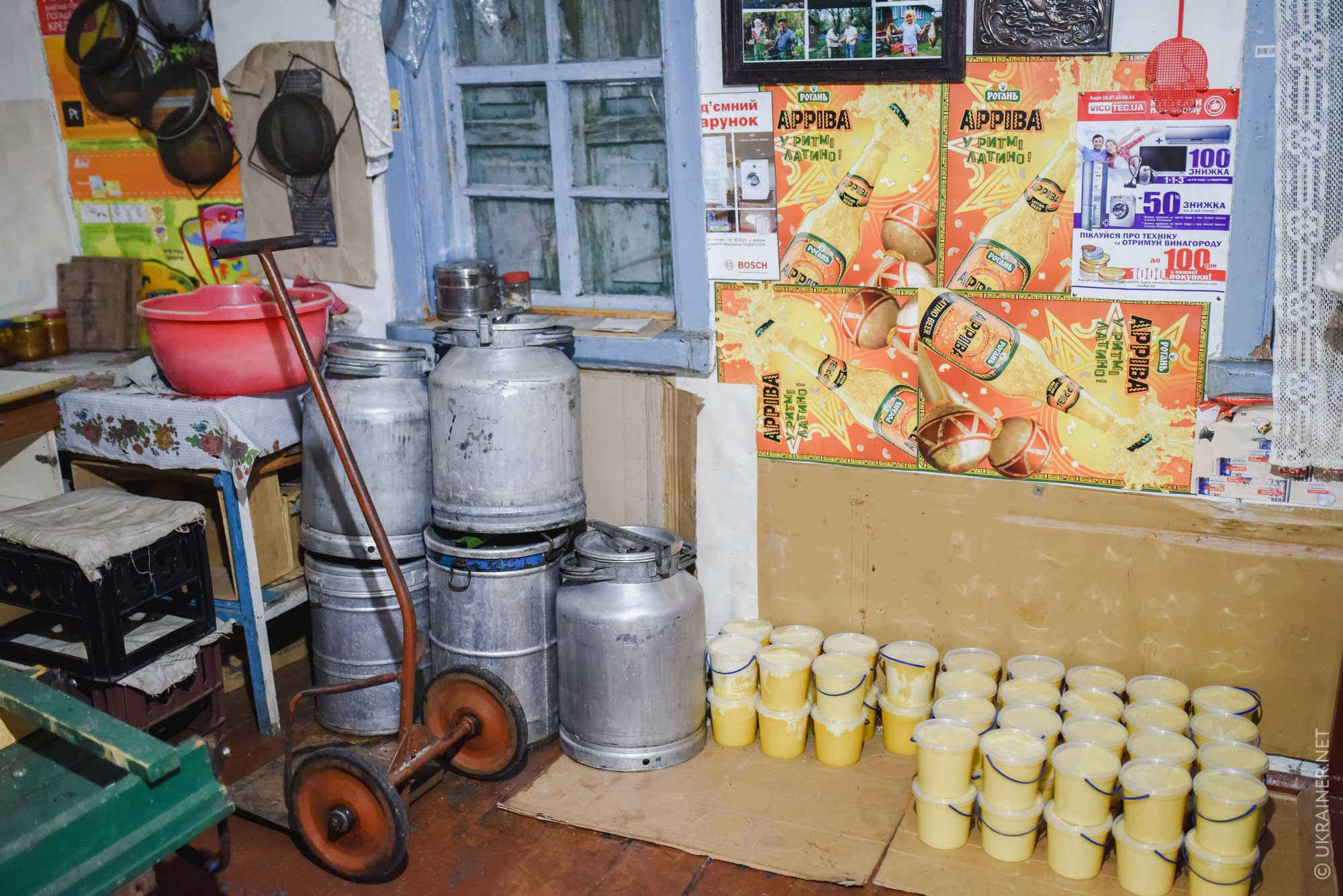
The beekeeper has, in addition to honey, propolis, and pollen, and even candles in his basement. He makes everything himself and sells. He can talk for hours about each product, describing the process of production in details. Everything in the basement has its place, as Ivan believes, that the place for products should be clean. There is even a scale to weight 100 g of pollen to sell at the market.
When Ivan was building the basement, he thought that bees would be living there during winter, but they were wintering in the old house before. Now it is about 10 years as they have been hibernating outside in hives wrapped in and covered with warm clothes. At a time Ivan stores honey, frames, pollen, and a collection of souvenirs in the basement. Even in cold weather honey aroma is in the air there:
— This is pollen. It’s like a vitamin, also can be used as a medicine from bronchitis, cold, and ulcer. It is multifunctional. The pollen comes from blossoms, a bee molds that pollen. One bee brings two pieces of it on legs.
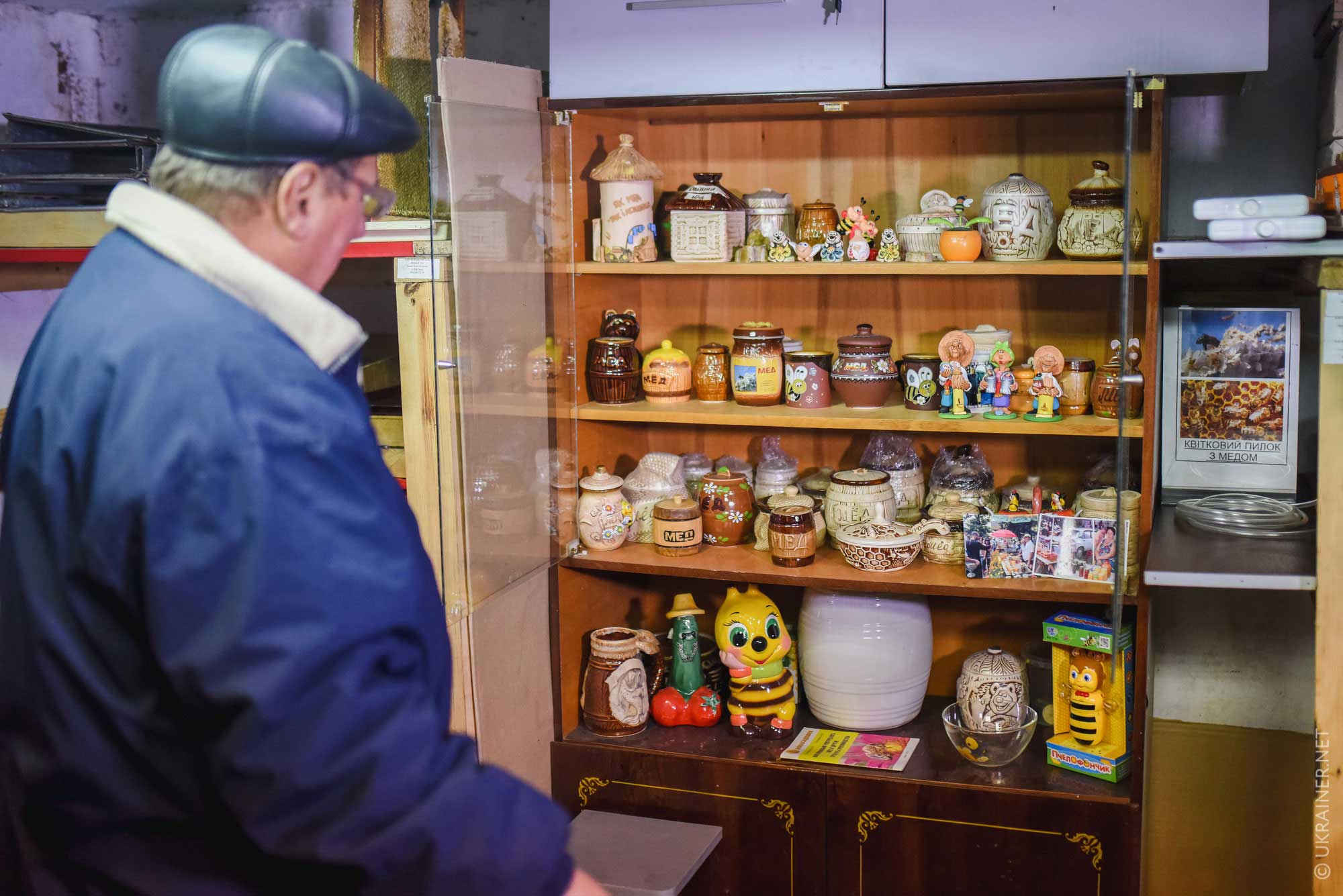
Ivan’s apiary is the largest in the area. Other apiaries have half of Ivan’s hives amount. Ivan has his hives numbered, he writes on the door of each hive how much food is needed and he cares about all products. The apiary is, first and foremost, his life, and after that-business.
On photographs or in films you can often see that beekeepers wear a special suitcase, so bees will not sting them. In summer Ivan works in shorts, does not wear even a veil mask. The same thing do his children and wife:
— Talking about the beekeepers who put on boots, tie their sleeves, wear gloves, I would say to stop torturing bees and themselves as well. How could they work around hives in such uniform during summer? I helped one man, thought, he would become a beekeeper. I needed to barter excluding frames, so I stopped by. He came out in sweatshirt, rubber gloves, all tied up. The beehive was opened. “What are you doing?” – “Pumping honey” – “So getting weird?”
slideshow
Such behaviour is unacceptable for Ivan, as he never wears a veil himself, even though bees have stung him a lot. Nevertheless, the beekeeper has his own method: the sting must be pulled out immediately, then it could be washed with cold water and rubbed with melissa.
The beekeeper tells that nowadays people do not buy as much honey as before. In the past on average people were coming from the city to the village to buy 4-5 three-liters jars, now they buy basically half-liter or liter ones:
— Generally, people, who come to us to buy honey, already bring plastic jars. Some for themselves, some go there, this one to Germany, that one – to America. I had some buyers from Germany, Nusseldorf or what you call it, so they called me and thanked me for that honey. Their friends bought it at the market and brought to Germany.
In the market, where Ivan sells, a liter costs 70 UAH, and those who resell it buy it for 27 UAH. While selling honey, the beekeeper communicates with friends and exchanges experience. When choosing honey, Ivan suggests to take a look at the beekeeper. He does like that choosing milk.
slideshow
Bee Therapy
In the apiary area Ivan has one exclusive place where he and his friends spend leisure time – a house with beehives. He says that he saw such in ex-president Victor Yanukovych and decided to make a similar one:
— So we had seen enough of Yanukovych, and I made such a house. It’s effective in summer, when bees are working, now it’s just there. There are hives with bees. They fly over there in the yard, and these are grids for ventilation, you can lie down there and listen to the bees’ buzz, and smell honey and propolis, and everything. The house is filled with these scents.
Ivan says that you can rest in this house for 40-60 minutes. You lie down on these hives and it feels like you are falling down somewhere and forgetting about all the troubles.
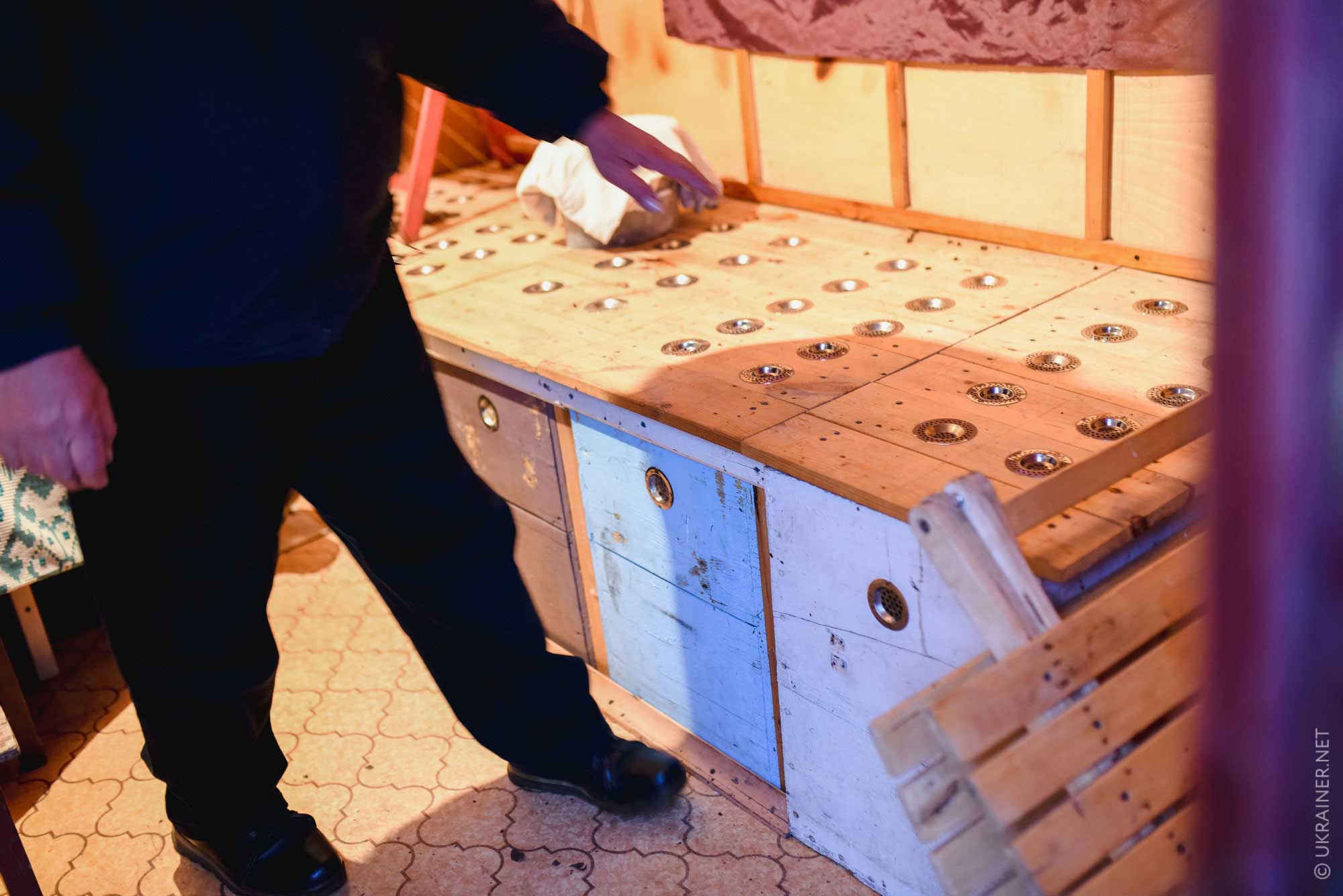
The beekeeper has made the small house for himself rather than for profit. He says that in Sorochyntsi it cost 200 UAH three years ago to stay in such a house and breathe in all scents:
— I’m not like that. I’m asked not to lock the house because a person would come at 4 am, early morning. Acquaintances. They come, lie down on that, breathe a little. There is nothing better than to breathe in those scents. I used to work at the factory, I know what asthma is. After apiary, I have forgotten it all.
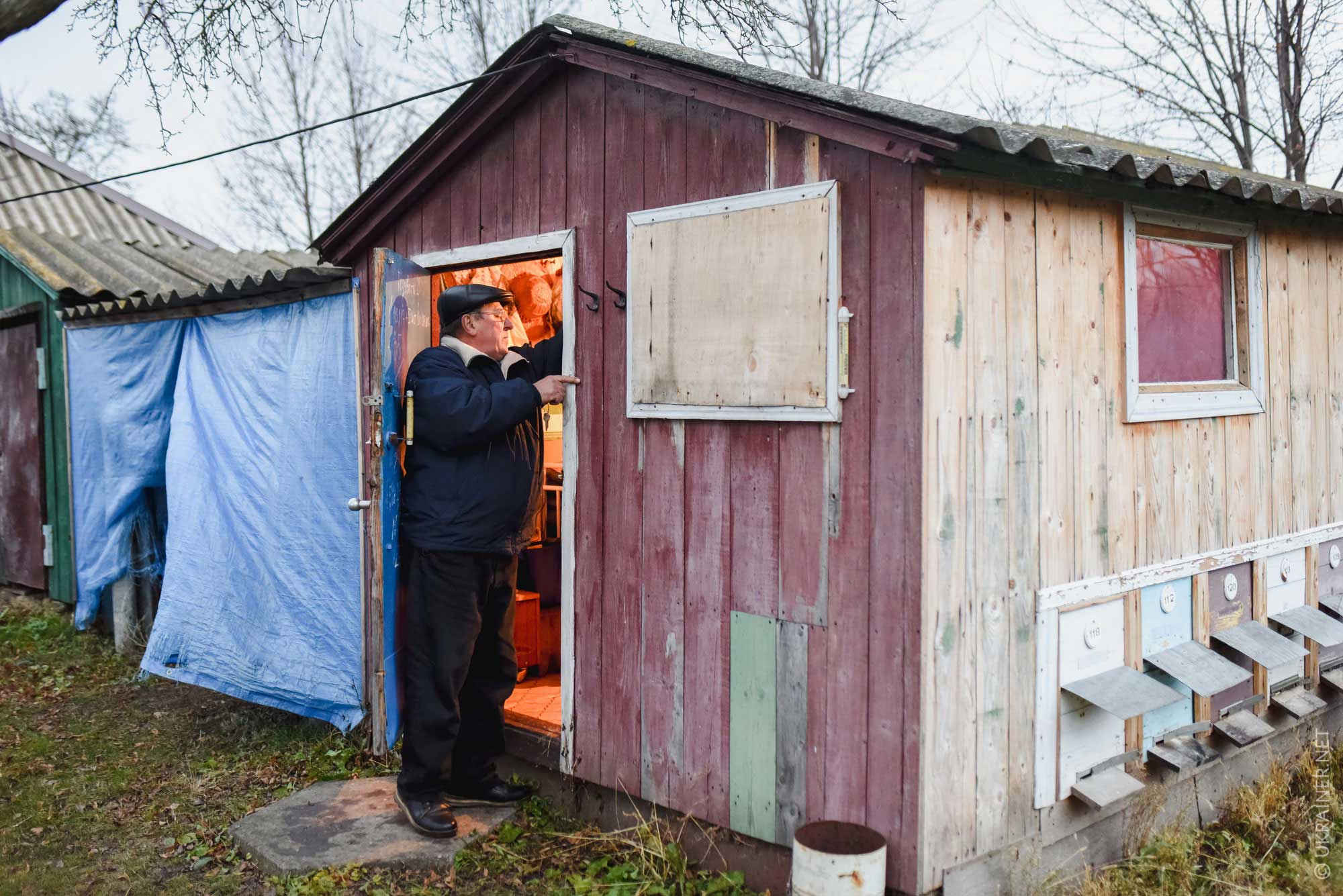
How we shot the video
Watch in our video blog about the road to the unique apiary of Ivan Gura in a half-empty village, where there are more bees than people.

